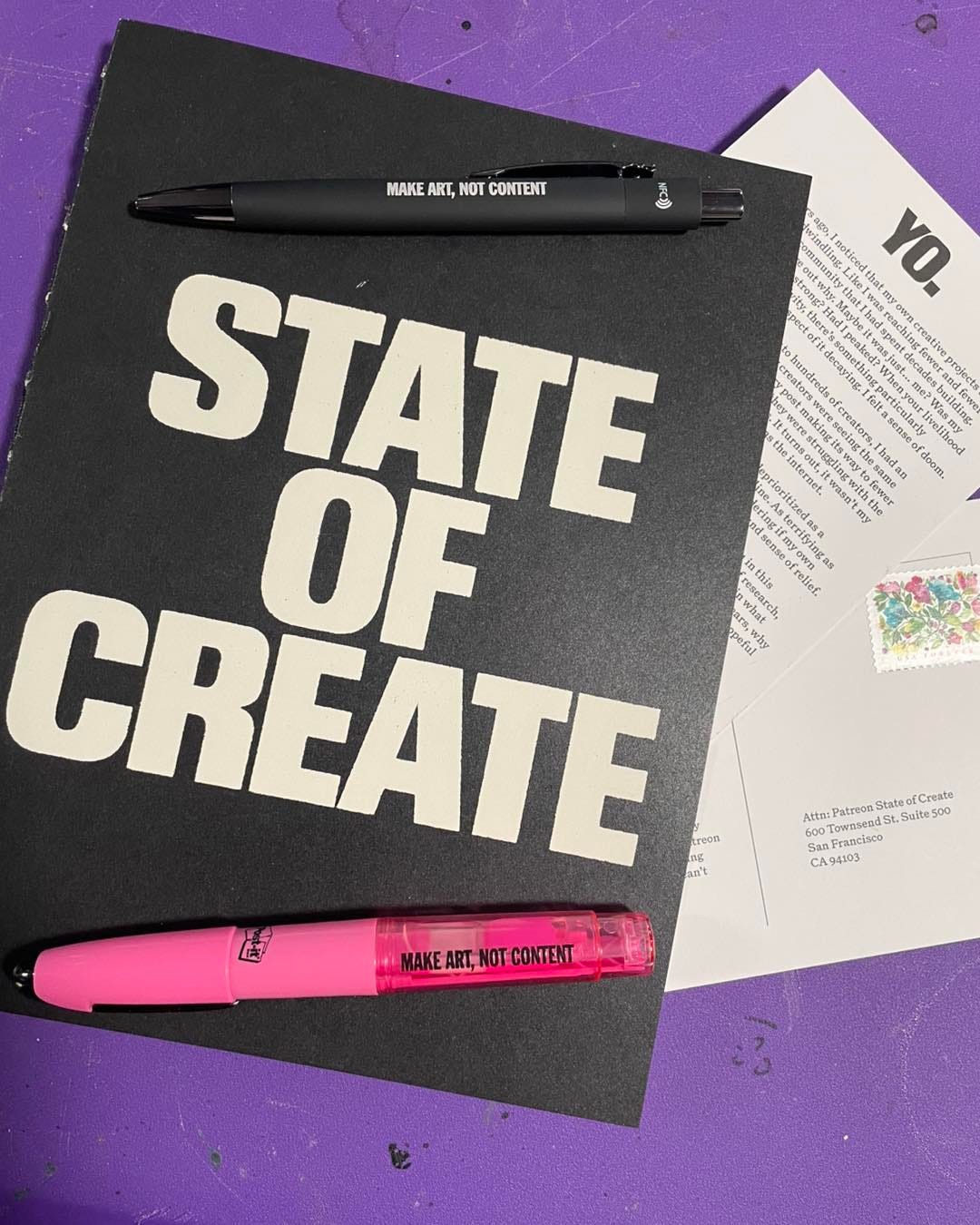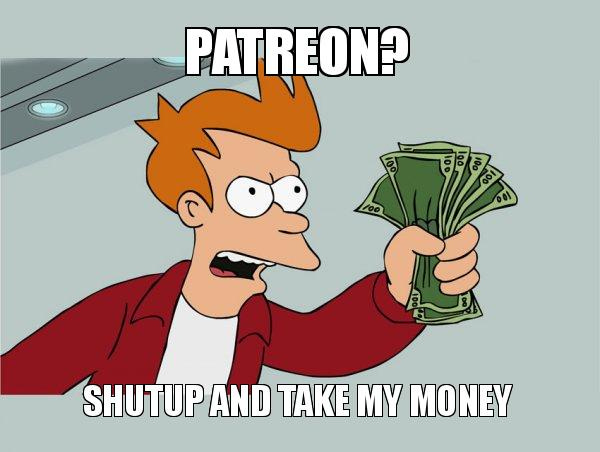He had stories he wanted to tell. Big ones. Small ones. Ones that mattered. And for a while, it seemed like he was on the right path. He played by the rules, made things people loved.
But no matter how much he succeeded, it never felt like his success. There were always notes. Always someone telling him what works. Always a meeting where he was told audiences didn’t want his kind of stories—they wanted what was trending. And when he pushed back? The doors started closing.
Filmmaker? TV writer? Nope.
A digital creator.
And the notes weren’t coming from a studio exec.
They were coming from The Algorithm.
Creators. Many, like the guy we featured a few weeks ago, King Willonius, TRIED Hollywood. But found solace in the open gardens of socials. But those gardens seem riddled with weeds. So while legacy media is peeking over the walled garden to see what creators are doing, some creators it seems, are looking about how to get OUT of their open garden.
Because they realize they don’t own their followers and they can’t hold on to them if they make what they want and not what the Algorithm tells them.
Recently, Patreon released a study where they surveyed 1,000 creators and 2,000 fans to take the pulse on where we are in the creator economy. What we learned is that creators are getting fed up. They have a hard time keeping people on their channels or feeds because the algorithm has no loyalty. It just takes the audience to whatever will keep their eyeballs on the screen.
Here are five highlights from that study which are relevant to our readers:
Creators feel pressured to produce algorithm-friendly content over passion projects.
Many creators report declining revenue despite growing audiences.
Audience retention is increasingly challenging due to unpredictable algorithm changes.
Direct-to-fan models are gaining popularity as creators seek stability and control.
Fans are willing to pay for niche, high-quality content directly from creators.
Just to write what you were thinking, yes, it’s very self-serving that Patreon, which is NOT an open garden, would highlight these trends.
However, this all lines up with a conversation I had with a creator recently who will remain unnamed. 20 million subscribers on YouTube. Over 3 billion views. And his audience is GROWING year over year.
And his revenue is going down.
Because he refuses to chase the algorithmic trends. He makes exactly what he wants, that’s what grows his audience. And yet, it's not growing his revenue.
Legacy and digital creators have more in common than either side wants to admit. Both built careers on the hope of creative freedom and expressing their individual voice. Both are realizing they don’t actually control their own work. And both are starting to look for the exits.
So Where Do They Go?
If this trend holds—and it sure looks like it will—this is an incredibly exciting time for creators and for legacy media. Because if creators are hitting a wall, the next question is:
Who’s going to build what’s next?
This idea isn’t new.
Back in 2020, Doug Shapiro wrote a prescient piece about how getting creators paid is the next big thing in media. Even then, it was clear that both Hollywood and digital creators needed a new model—one that prioritized creative freedom and fair compensation. His insights are even more poignant today as the tension between creators and platforms continues to grow.
Creators are already shifting toward direct-to-fan (DTC) models. Just look at Patreon:
250,000+ creators
8 million monthly active patrons
$8 billion+ paid out
$100+ million paid out per month
And that’s just one platform.
The White Space: Where Creators and Hollywood Converge
This is the middle ground between Hollywood and social media—the space where premium, niche, paywalled content is taking off. Right now, we’re seeing small walled gardens pop up everywhere—Patreon, Substack, Discord communities, OnlyFans, niche streaming platforms.
But this is just the first wave. The real play is what happens when:
These gardens start getting rolled up—bigger networks that connect creators instead of keeping them isolated.
They scale with capital—but stay creator-first. Imagine an HBO for creator-led projects. Not UGC (user-generated content). Creator-generated franchises. (Nebula is one of them and apparently they just hired high-end legacy producer Dan Jinx to produce series for them.)
Legacy media gets smart and starts playing the long game.
What if studios set up creator divisions? What if streamers co-produced with creators—giving them a first window but letting them own the second? What if networks invested in creator-driven brands, not just one-off viral projects?
Hollywood has been chasing creators like a thirsty ex—desperate for engagement, but offering nothing they actually want. What if, instead, they became the good cop to the algorithm’s bad cop?
Because here’s the thing: great creators don’t actually want to chase trends.
They want to make what excites them.
The ones who break out do it by going against the algorithm—not feeding it.
How This Becomes Huge
Hollywood is full of people who know how to develop talent, build franchises, tell stories at scale—all the things creators wish they had access to.
Meanwhile, creators have something Hollywood desperately needs: a direct connection to their audience.
The system is breaking. But for the ones who figure this out, it won’t just be survival.
It’ll be the beginning of something entirely new.





THIS is the conversation I wish we were having more of! I do have a question — where do you see independent artists etc. fitting into this new wave?
I think there is an implicit crossover nowadays between indie artist and digital creator, but indie artists certainly have different levels of industry-fluency and even different levels of desire to pursue Hollywood at large (considering smaller and smaller writer's rooms, strikes, AI issues, etc.). Even if Hollywood rights all of this, I see a wave of former industry darlings heading toward the hills of digital DTC creating instead.
I'm curious your predictions for that independent artist turned digital creator who distrusts (or has even intentionally left) Hollywood?